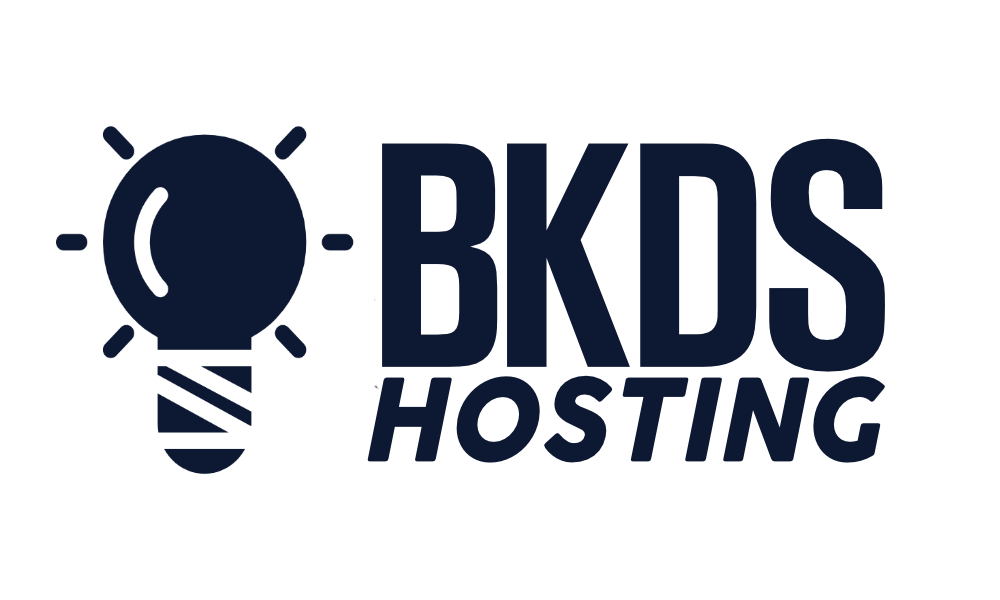In an era where digital assets are becoming just as crucial as physical ones, the security of a small business's online presence can no longer be an afterthought. The specific choice of hosting service can play an integral role in safeguarding a small business from a plethora of cyber threats. Unpacking the top eight security advantages of small business hosting will reveal how this choice can significantly bolster a company's digital defense strategy, maintain its reputation, and ensure seamless operations. As we navigate through these, we will uncover the compelling reasons that make small business hosting an imperative in today's digital landscape.
Enhanced Data Protection Measures

To bolster the security of small businesses, implementing enhanced data protection measures such as data encryption, regular backups, access controls, firewalls, and malware scanning is indispensable. These measures serve as a proactive barrier against the risk of unauthorized access and malicious attacks.
Data encryption, facilitated by SSL/TLS certificates, provides a robust layer of protection for sensitive information. It ensures that data transmitted over networks is unreadable to anyone without the correct decryption key, significantly reducing the risk of unauthorized interception and access.
Regular backups are another essential measure to protect data integrity and ensure business continuity. In the event of data loss, whether due to hardware failure or cyberattacks, businesses can quickly restore their operations using the backed-up data.
Access controls play a vital role in keeping sensitive data and resources secure. By restricting access to only authorized personnel, they minimize the risk of unauthorized manipulation or breach of data.
Firewalls act as a first line of defense against cyber threats, blocking unauthorized access while permitting legitimate traffic. Alongside, continuous malware scanning allows for the early detection and removal of malicious software, thereby enhancing overall data security. These combined measures form a comprehensive approach to safeguarding small businesses from potential cyber threats.
Mitigating Cybersecurity Threats
In the realm of cybersecurity, the effective mitigation of threats is a strategic imperative for small businesses, necessitating a multifaceted approach that combines proactive monitoring, threat intelligence, incident response planning, and regular security audits. Small business hosting provides a robust platform for implementing these advanced measures, thereby significantly mitigating cybersecurity threats.
Four key security advantages of small business hosting include:
- Proactive Monitoring: This feature enables real-time supervision of network traffic, promptly identifying potential cyber threats before they escalate into serious issues.
- Threat Intelligence: By leveraging artificial intelligence and machine learning, small business hosting provides insights into emerging threats, enhancing a company's defensive capabilities.
- Incident Response Planning: Small business hosting allows for swift and effective reactions to security breaches, often isolating affected areas to prevent wider unauthorized access.
- Regular Security Audits: These ensure that security measures are up-to-date and effective, providing an opportunity to rectify potential vulnerabilities.
In integrating these features, small business hosting offers a comprehensive approach to mitigating cybersecurity threats. By fostering an environment that prioritizes security, businesses can significantly reduce the risk of unauthorized access and safeguard their critical data from cyber threats.
Ensuring Customer Data Privacy

Customer data privacy, a cornerstone of digital trust, hinges on the implementation of robust data encryption measures, stringent access controls, and regular security updates. A Small Business Website must ensure these are integrated into its framework to uphold the integrity of its customer data.
A Privacy Policy clearly outlining data protection practices bolsters the confidence of website visitors. Hosting for Small businesses should utilize SSL/TLS certificates to encrypt data transmission, thereby enhancing user experience by assuring them of their data safety.
Regular backup of customer data is crucial. This not only prevents data loss but also curbs unauthorized access. Access controls should be in place to ensure that only authorized personnel have the right to access sensitive customer data.
Moreover, the importance of regular security updates cannot be overstated. A security lapse could result in severe consequences, including breach of customer data and loss of business credibility. Adding to this, a continuous regime of malware scanning protects the website from potential threats, thus safeguarding customer data.
Incorporating these measures into the hosting environment of small businesses ensures a fortified defense against cyber threats, thereby ensuring customer data privacy.
Secure Online Transactions
As we shift our focus to secure online transactions, it is crucial to underscore the significance of payment gateway safety. These gateways, when fortified with Secure Socket Layer (SSL) certificates, provide an encrypted pathway for sensitive customer data, offering robust protection against data breaches. Notably, these measures not only fortify a small business's digital defenses but also bolster customer trust and loyalty, a potent combination that can drive long-term success.
Ensuring Payment Gateway Safety
Securing payment gateways for online transactions necessitates a comprehensive strategy, encompassing the implementation of SSL/TLS certificates for data encryption, regular security updates, firewall usage, and malware scanning to safeguard against cyber threats. Small businesses using website hosting can enhance their security measures to protect customer data during transactions.
- SSL/TLS Certificates: Deploy these for data encryption, ensuring secure online transactions.
- Firewalls and Security Updates: Regularly update security systems and use firewalls to protect against cyber threats.
- DDoS Protection and Access Controls: These measures prevent unauthorized access, maintaining data security during transactions.
- Data Backup and Access Controls: Regularly backup payment data and implement stringent access controls.
Implementing these methods in small business website hosting assures payment gateway safety, fostering customer trust and business reputation.
SSL Certificates Importance
Building upon these security measures, the importance of SSL/TLS certificates comes to the forefront, specifically in their role of ensuring data encryption for secure online transactions. For a small business owner, enhancing their online presence demands tight security, which is where hosting services come into play.
Hosting providers implement several measures, with ssl certificates importance being paramount. These certificates not only provide data encryption but also foster customer trust. Below is a table summarizing the key roles of SSL/TLS certificates:
| Role of SSL/TLS certificates | Importance |
|---|---|
| Data Encryption | Ensures safe and secure online transactions |
| Building Trust | Fosters confidence among customers |
| Protection of Customer Information | Prevents unauthorized access to customer's personal and financial data |
| Provide Secure Environment | Ensures safe space for conducting online transactions |
Protection Against Data Breaches
In the realm of online business, protection against data breaches plays a crucial role, primarily by safeguarding customer payment and personal data from unauthorized access. This responsibility is acutely felt by small businesses which are often the targets of cyberattacks.
- A reliable hosting provider takes care of the server's security, ensuring data is securely stored and transactions are protected.
- Tailored to the needs of small businesses, dedicated hosting allows for a secure environment to process transactions and store sensitive data.
- Regular updates and patches are applied to keep the server secure and resilient against evolving threats.
- Lastly, continuous monitoring and intrusion detection systems are employed to detect and mitigate any potential breaches swiftly.
These measures ensure robust protection against data breaches, fostering trust and confidence in your customers.
Reliable Website Uptime
In the realm of small business hosting, reliable website uptime is a critical factor that impacts the overall user experience and business credibility. The importance of maintaining a 24/7 uptime cannot be overstated, as it directly influences customer trust and the retention of potential clientele. Additionally, addressing and overcoming downtime challenges is integral for businesses to maximize website traffic, conversions, and ultimately, revenue generation.
Importance of 24/7 Uptime
Consistently maintaining 24/7 uptime is crucial for small businesses as it ensures continuous availability of the website, thereby fostering customer trust and satisfaction. The importance of 24/7 uptime cannot be overstated, and here are four reasons why:
- Uninterrupted Availability: Customers need access to your website at all times. The servers must be operational round-the-clock to meet this demand.
- Reliable Performance: Downtime affects user experience and website performance. Hosting providers typically employ robust mechanisms to minimize this.
- Global Reach: With 24/7 uptime, businesses break regional barriers and reach a wider audience.
- Security: To ensure your website is safe from cyber threats, hosting providers use secure servers, reinforcing the need for continuous uptime.
Indeed, 24/7 uptime is an essential feature of small business hosting.
Uptime and Business Credibility
Building trust and credibility with customers, reliable website uptime serves as a critical factor in maintaining a business's reputation and reliability. Managed Hosting aids in providing consistent website performance, a critical aspect of uptime and business credibility. It ensures that business owners can focus on their core functions, while server maintenance and uptime monitoring are dealt with by professionals.
| Importance | Result |
|---|---|
| Reliable Website Uptime | Builds customer trust and credibility |
| Managed Hosting | Provides consistent website performance |
| Server Maintenance | Ensures uninterrupted service availability |
| Business Credibility | Enhances reputation and reliability |
Therefore, the importance of uptime cannot be overstated. It reflects the professionalism and reliability of the business, contributing significantly to its credibility. This is why managed hosting services are indispensable for small businesses aiming for optimum performance and credibility.
Overcoming Downtime Challenges
Navigating through the turbulence of downtime challenges, businesses must prioritize reliable website uptime to ensure continuous access for customers and maintain a robust online presence. When it comes to overcoming downtime challenges, the selection of a competent server hosting provider is imperative.
- Dedicated Servers: They offer maximum control, performance, and stability, thus ensuring reliable uptime.
- Hosting Environment: A secure and resilient hosting environment fosters continuous website accessibility.
- Peace of Mind: Consistent uptime offers businesses peace of mind knowing their online presence is unhindered.
- Overcoming Downtime Challenges: Implementing strategic measures like regular backups, redundancy plans, and proactive monitoring helps in mitigating downtime risks.
Regular Security Updates and Patches
In the realm of online security for small businesses, implementing regular security updates and patches plays a critical role in addressing vulnerabilities and fortifying against potential cyber threats. Small business hosting provides a platform where these critical updates and patches can be implemented efficiently, offering significant security advantages.
By maintaining a cycle of regular security updates and patches, small businesses can ensure their online platforms are equipped with the latest defense mechanisms. This proactive approach helps to mitigate the risk of exploitative cyber attacks, such as DDoS attacks, that can compromise the integrity and reliability of their online systems.
Consider the following comparison:
| Without Regular Updates and Patches | With Regular Updates and Patches |
|---|---|
| Vulnerable to evolving threats | Equipped to counter new threats |
| Risk of exploitation increases | Minimized risk of exploitation |
| DDoS attacks have more impact | Reduced impact of DDoS attacks |
Encrypted Communications

As a hallmark of robust online security, encrypted communications serve as a formidable barrier against unauthorized access, effectively securing sensitive data during transmission. Businesses can benefit immensely from this level of security, particularly when using hosting solutions that prioritize encrypted communications.
- Prevention of Eavesdropping and Interception: Encrypted communications ensure that sensitive information remains confidential, thwarting any attempts at eavesdropping or interception.
- Trust and Credibility: By ensuring data security, businesses build trust and credibility with their customers. This is especially vital in an age where data breaches are becoming increasingly common.
- Protection Against Cyber Attacks: Robust encryption can safeguard against potential cyber attacks, including Distributed Denial of Service (DDoS) attacks. This is a prime advantage of managed services that prioritize security.
- Commitment to Customer Privacy and Security: Utilizing encrypted communications signals a business's commitment to protecting customer privacy and security, a feature that is highly valued by modern consumers.
Scalable Security Solutions
Leveraging scalable security solutions offers small businesses the capability to adapt and bolster their security infrastructure in response to evolving threats and business growth. This flexibility is one of the most valuable security advantages of small business hosting. As cyber threats evolve, businesses can focus on strategic growth while their trusted partner manages the security landscape.
Scalable security solutions are cost-effective, allowing businesses to manage their security budgets efficiently. As the risk profile changes, the security measures can be scaled up or down accordingly. This adaptability prevents the wastage of resources and ensures the highest level of protection is maintained at all times.
Moreover, small business hosting offers seamless integration of additional security technologies as businesses expand their digital presence. This ability to incorporate new measures into the existing infrastructure enhances the resilience of the business against new security challenges.
The flexibility and adaptability of scalable security solutions make them an indispensable tool for small businesses. By entrusting their security to a trusted partner, small businesses can concentrate on growth and innovation, knowing that their security measures will evolve in tandem with their business.
Conclusion
In conclusion, small business hosting fortifies overall cybersecurity by implementing enhanced data protection measures, mitigating threats, safeguarding customer data privacy, and securing online transactions. Reliable website uptime, regular security updates, encrypted communications, and scalable security solutions further contribute to a robust security framework. This not only bolsters the trust and credibility of a business but also shields it from legal and financial repercussions of data breaches, thereby ensuring its uninterrupted growth in the digital space.

